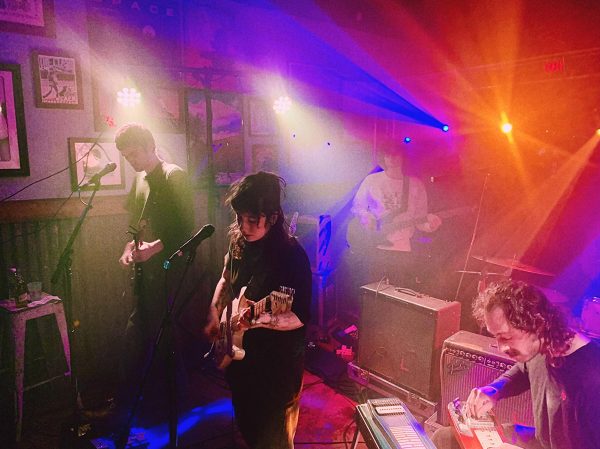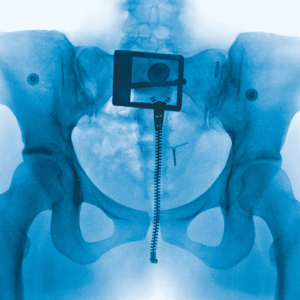REVIEW: ‘Euphoria’ makes a strong return for the new year, defined by chaos and visual glamour
This review contains light spoilers for episode one in season two of “Euphoria.”
After a two-and-a-half-year absence, HBO’s “Euphoria” returns for a second season. The premiere episode, titled “Trying to Get to Heaven Before They Close the Door,” is a grand homecoming for the series that centers around development for fan-favorite side characters and setting up conflicts for the coming weeks. The series is infamous for its mature content and excessive nudity, to the point where some may criticize it as being vulgar just for the sake of it. However, the premiere reminds viewers that its shocking content is backed up by storytelling that follows deeply broken people and the desires or addictions that consume, and often dictate, their choices.
Taking place on New Year’s Eve, the episode focuses on the first meeting between Rue (Zendaya) and Jules (Hunter Schaefer) since Christmas. Keeping with season one’s tradition, the episode opens with a character backstory, this episode focusing on Rue’s drug dealer friend Fezco, nicknamed “Fez” (Angus Cloud). Meanwhile, Cassie (Sydney Sweeney) takes part in a sexual encounter that holds inevitable consequences for herself and those closest to her.
Last season, Fez’s fate was left ambiguous as we last saw him recouping the money he owed to drug dealer Mouse (Meeko Gattuso). This happened after Nate called in a police raid to Fez’s shop as retaliation after Fez threatened to kill him. Although Fez stole money from a doctor to pay Mouse back, it was left unknown if Fez would walk away from their meeting unharmed. After leaving his fate in the air at the end of season one, opening with Fez’s backstory is a strong attention-getter, as the teen drama crosses over into crime drama territory for a short time. The episode opens with a Scorsese-esque flashback as Fez’s grandmother (played by “Sopranos” alum Kathrine Narducci) walks into a strip club and shoots a man in both legs as he receives oral sex from a dancer. Displayed in graphic detail, the show reaffirms its explicitness and the unpredictable scenarios that take place. After she walks out nonchalantly and drives away, the camera cuts to a young and unphased Fez in the passenger’s seat. We then see Fez as a child acting as a business partner to his grandmother while he accompanies her to drug deals and assaults, and we witness him meeting his adoptive brother Ashtray (Javon “Wanna” Walton”).
While other characters share the same amount of focus in this episode, the premiere is still a very Fez-centric episode. As the most morally flexible of the show’s main characters, Fez displays a humanity that’s defined by his friendship and care for Rue. This can be seen in season one when Fez tries protecting her from drug dealer Mouse (Meeko Gattuso) after he forces her to take Fentanyl, or the visible guilt he shows when Rue points out that he’s partly responsible for her addiction as her drug dealer. We were partly able to disregard his drug dealing in season one because of the character’s protective nature, but this episode forces us to take another look at his character and realize that he may not be a good person at all. One of Fez’s greatest strengths in season one was his care for Rue, as well as his grandmother, and the quiet toughness of his character. The writing for Fez is a factor in his characterization, but Cloud advances it by portraying him as a flawed but morally complex person.
Beneath an unshaken personality and chill visage, Cloud conveys a subtle intensity that informs us of Fez’s will to do both good and bad things while reminding us of his somewhat mature distinction from the toxic high school characters. Though he is not as toxic or petty as some of the other main characters, it is clear that he may be the most dangerous of them all, as he seems unfazed at the sight of death or carrying out violence in this episode. Fez is characterized by his moral flexibility, as well as his interactions. However, his first time interaction with Lexi (Maude Apatow) near the episode’s end signals a possible redemption for him. But with this chance for redemption, there comes the question of whether or not he’ll receive it without consequence, considering his actions at the episode’s conclusion.
The characters find themselves in tense situations without much room for comfort. Moments such as a drug dealer meeting, high-speed car rides and taking drugs hold much more weight given the time we spent with the characters last season. The house party location is great, but also worrisome, because all the main characters are under one roof and it conjures a sense of uneasy anticipation as we wait for reunions or conflicts to erupt between certain characters. “Euphoria’s” mature subject matters and imagery are discomforting on their own, but it is worth noting that such discomfort is amplified by the episode’s filmmaking techniques.
In the instance of the bathroom sex scene between Cassie and Nate (Jacob Elordi), the first shot of the two highlights a desirable energy that is expected from the show, but it then turns into one of the show’s more stressful scenes when Maddy (Alexa Demie) knocks on the door and realizes Nate is inside. The scene takes on a light horror format as the camera shots become tighter when Nate places his hand over Cassie’s mouth to conceal her pouts. There’s so much discomforting tension built from several scenes throughout the episode that signals how the season will push boundaries more than season one did.
The episode is a strong return to richly-developed characters as we witness them at their best and worst. Toxic moments such as Cassie’s trying to hide from Maddy, Nate’s creepy drunken pestering toward McKay (Algee Smith) and Rue’s laughter after facing life-or-death situations remind us that the characters are changing morally. The episode cements the idea that improvement or positive development for these characters may not be possible any time soon as they head into a new year. The episode’s importance to the season shows through both the writing and visual aesthetic.
The vivid cinematography is still one of the show’s strongest features as it was in season one. Whereas most of season one had a dreamier, flashier and brighter visual aesthetic, season two looks slightly bleaker so far. In the post-episode discussion, titled “enter euphoria,” cinematographer Marcell Rév described season one as having a “very in-the-moment, very present feel to it” whereas season two’s premiere, being shot on film, “feels like some sort of memory of high school.” The visual distinction between the two seasons define an overall emotional state for each one. While season one has an overall freshness that’s countered by darker moments, the season two premiere looks more intimate and paints a picture of how crucial the night’s events may be for the rest of the season as the new year rolls in.
“Euphoria” returns with a premiere that doubles as a character study and the prelude to chaos for the main characters. The series continues to be a visual delight and a devastating portrayal of how substance abuse, flawed upbringing and addiction plague the youth. After a tense character-centric premiere, we can only guess what the season has in store for us in the weeks ahead.
This review is the first of a weekly schedule that will recap each episode of “Euphoria” for the current season. Come back every Monday to read our take on this season!











